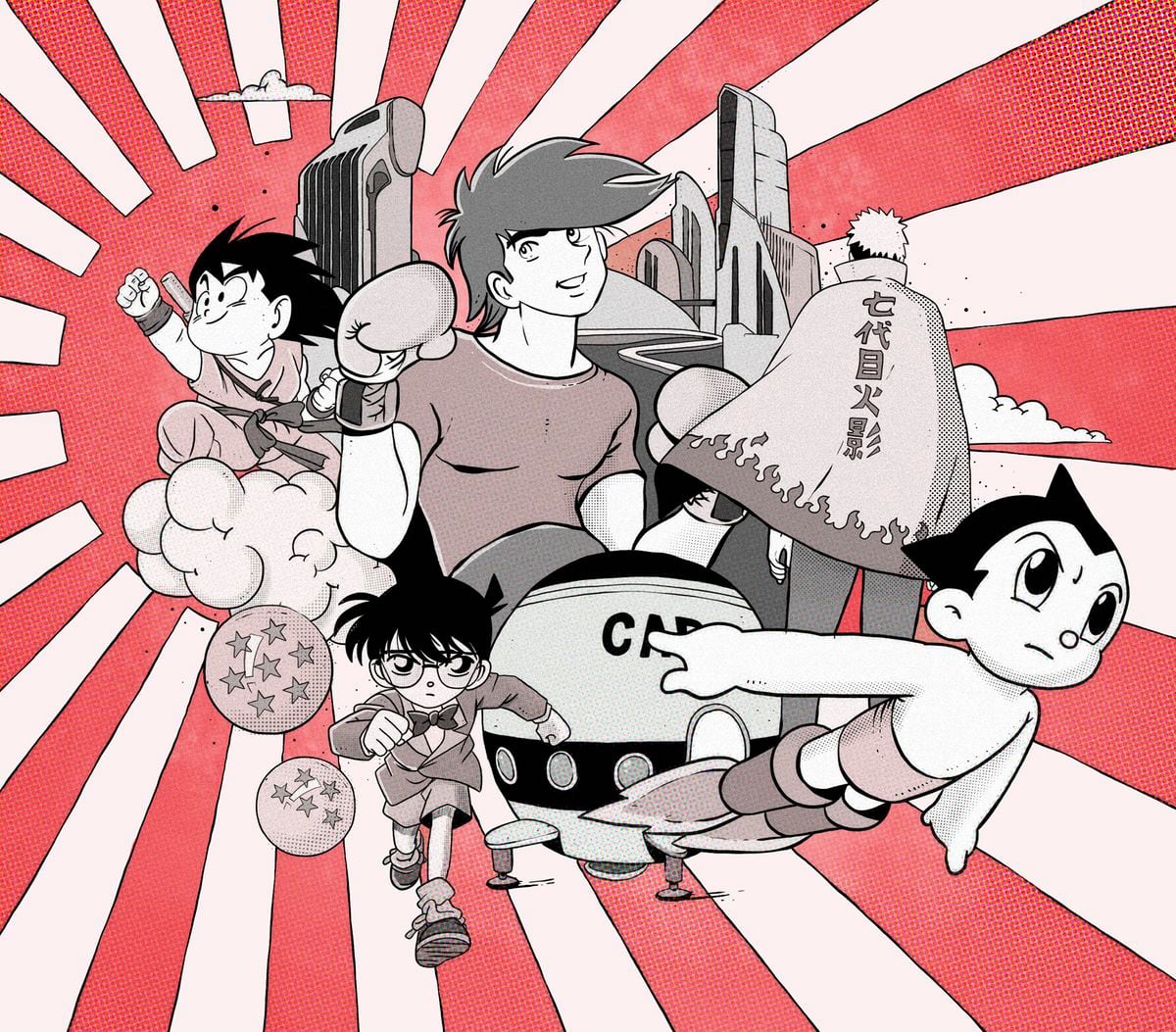Japanese manga and anime are increasingly hegemonic among Western children and young people, as well as fascinate many adults.
Although Astroboy was known throughout the world during the 1960s, for many Westerners his first contact with manga and anime was Dragon Ball.
In Japan, before Goku's adventures, Ashita no Joe, also called Tomorrow's Joe, had caused a furor, which tells the story of a long-suffering boxer.
In recent decades, series such as the popular
Naruto,
as well as
Detective Conan, Attack on Titan
or
One Piece,
have triumphed.
a pirate story that was the best-selling manga in Japan between 2007 and 2018. Beyond the wacky adventures that characterize these stories, let's look at their wisdom for everyday life.
Growth is on the other side of despair.
The protagonist of
Dragon Ball
always fights to the brink of death, takes the magic beans and becomes stronger.
As Héctor García, author of
A Geek in Japan, points out,
“the heroes of the manga, until they are almost defeated, they do not level up”.
Applied to daily life, we need to face great difficulties in order to truly know ourselves and unfold our full potential.
Each ordeal we face enables us to ascend one step in our evolution.
Giving everything is already a victory. The end of
The Joe of Tomorrow is
perhaps the most dramatic and commented in the history of the manga. Its protagonist, who has been growing as a boxer against increasingly stronger rivals, dies in his last fight after having endured 15 rounds. In a famous cartoon he is seen slumped in his corner, proud of his attitude in the fight. Although the judges end up giving his rival as the winner, Joe has a serene smile on his face.
It is an extreme example of the Ganbatte philosophy, to which we dedicate an article in this section. This expression that translates as "try your best" fits with the fourth law for life of Jordan Peterson: "Do not compare yourself with another, compare yourself with who you were yesterday." Whatever the challenge, even if you don't meet it, if you've done your best, you've already won.
Your enemies can become your best friends.
In the manga and anime this happens literally. In
Dragon Ball
,
Little Heart,
the protagonist's worst enemy, ends up being an ally who fights by his side. It is very common, as Héctor García points out, for antagonists to evolve morally when they realize what they are doing and end up changing. This is a big difference from the North American comic, where the destruction of the opponent is sought, while here the transformation is sought.
The Dalai Lama claims that "your enemy is your teacher", in the sense that he tests your patience and resilience.
The enemy sometimes takes the form of an obstacle or difficulty that blocks our path, but which, once overcome, provides us with an invaluable lesson for the future.
On this, Vittorio de Sica stated that "the Bible teaches to love our enemies as if they were our friends, possibly because they are the same."
When you are lost, go back to your childhood
.
This happens to the protagonist of
Detective Conan
, who, after discovering the shady businesses of some men in black, is poisoned.
Although he manages to save his life, a side effect turns him into a seven-year-old boy.
He will use his new identity to solve other cases and take revenge.
In his lecture
The Last Lesson,
after learning that he suffered from terminal cancer, Randy Pausch decided to give a talk at his university under the title "Reaching your childhood dreams."
He himself dedicated the last months of his life to fulfilling a wish list long forgotten, but which contained the essence of who he was.
Children, moreover, are not aware of the limitations that adults see or, if they see them, they do not think that they are insurmountable.
These illustrated stories full of mishaps and imagination fascinate us because they are a reflection of our life.
We give our trials and enemies more everyday names, but, as Bowie sang, even for just one day, we are all called to be heroes.
The adventures of an android
- The Japanese call him the god of manga. Osamu Tezuka drew 150,000 pages of manga in 35 years of work, in addition to creating 60 animated films. In the 1960s he managed to triumph in the West with Astroboy, the adventures of an android who fights crime and injustice.
- This was a change of perspective on technology, since most American films presented robots as a threat.
- Creative to the end, on his deathbed in the hospital, it is said that his last words were: "I beg you, let me work."

